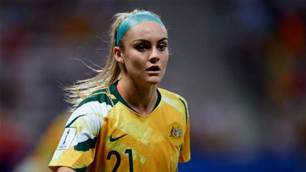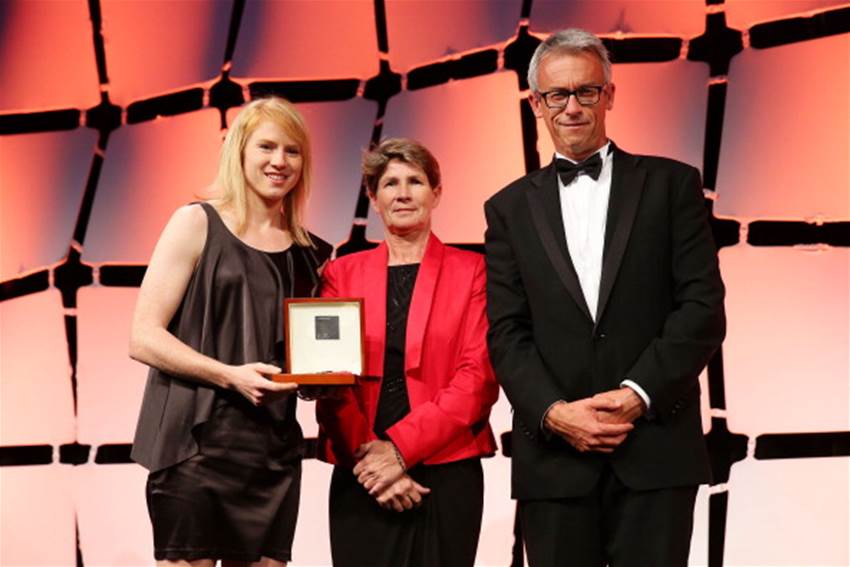No Australian athlete has created a greater legacy from a humbler outset than Julie Dolan. Her ubiquitous trailblazing helped pave the way for professional women’s sport in Australia.
'The ball came from midfield and travelled out to Carol Vinson on the wing. She crossed it over to Janine Riddington, who was flying up the middle of the park. The ball had beaten the Brazilian backline, Riddington was on the ball and Brazil’s goalkeeper was suddenly the last line of defence. She had come out a long way trying to stop her, and Riddo just chipped it over her head. It was just . . . beautiful.
‘I look back at the team performance now and it was just tremendous. The team [was] buzzing, as I should have been – it was the most incredible goal I’ve ever seen. Everybody had a right to be buzzing but my emotions were flat that day. We were just in survival mode for a little too long. We scraped the win – that was my feeling at the time – because it was such a tough game. Looking back, I know that’s why I was a leader. I knew that about myself and I guess that’s why I was recognised by the coaches who made me captain. It’s difficult to actually say that though. You know it about yourself . . . but you don’t know how other people view you.’
Julie Dolan is Matildas cap number one, the first Australian woman to walk onto a football pitch representing her nation in an official international football match. She captained Australia’s women’s national team in the first women’s World Cup, Asian Cup and Oceanian Cup in history, and she also captained Australia in their first international tournament, pioneered the first female football league and spearheaded the most dominant Australian club team of all time.
Her impact was so momentous that the year she retired the Julie Dolan Medal for the best female footballer of the year was created in her honour. In 2000 the International Federation of Football History and Statistics named her Oceania’s Female Player of the Century.
Dolan’s career had the humblest of beginnings. She was born in January 1961, the single girl to four brothers, in a suburban backyard in Sydney’s Sutherland Shire. Her rough and tumble upbringing is still evident in the way she speaks and the way she coaches young girls today: there’s not an ounce of fragility in female football’s pioneer. ‘Girls didn’t play football back then but my upbringing was very different,’ she said. ‘We just played football in the backyard all the time and that’s where it all started. The girls at school didn’t play football so then I played football at school with the boys as well. You can’t beat that sort of training.’
Dolan was so talented that by 10 years of age she became involved with Australia’s leading football club at the time, St George Budapest. St George’s men’s side was captained by Australian football’s other iconoclast, Johnny Warren, who welcomed the formation of the club’s first female team. St George was a radiating pioneer at this time – even Les Murray played there as a junior – but Dolan and Warren became the greatest: they nurtured Australian football from its infancy, and their passion and expertise for the game and its history still reverberates around Australian lounge rooms, television studios and packed stadiums every time the Socceroos and Matildas take to the pitch. The pair’s lasting legacy will be forever intertwined, as Australian football’s awards night is called the Dolan Warren Awards in their honour.
The St George Budapest women’s football team is the most successful football team in Australian history and quite possibly the most dominant team of any code. It was the first female side to demand professionalism and dedication from its players, which perfectly complemented Dolan’s prodigious enthusiasm. She was playing against hardened female athletes in their 30s, but after years of tussling it out with her older brothers she was far readier than anyone expected. Even as a pre-teen Dolan was quick, hard tempered and extremely determined, and her incredible success at such a young age is one of her most startling achievements. Her club played seven years undefeated from 1971 to 1977 in Australia’s first female football league, New South Wales’s Metropolitan Ladies Soccer Association (MLSA). In 1972 alone they scored 206 goals and conceded none.
‘I think the relationship with Soccer Australia was always “Okay, well, there’s the men’s game, and then the girls have a go”,’ Dolan said. ‘There’s always a disparity between men’s and women’s sport; that hasn’t changed. But in terms of travelling abroad, the foreign countries, their teams and their associations welcomed us like royalty, which was something completely new for us. There were always people packed at the airport to greet us and check us out. The accommodation was always top notch. We were treated a lot differently. We never experienced that treatment in Australia, but it’s not something you look for if you’ve never experienced it.’
This is an extract from the incredible new Australian football book The Immortals of Australian Soccer, which recounts an unparalleled history of Australian football through its greatest moments and players. The book is available now through all good bookstores or online here.
Related Articles

'Timing not right': Montemurro's verdict on Matildas vacancy

Matildas: 'Fourth at the Olympics is honestly the worst place you could come'
.jpg&h=172&w=306&c=1&s=1)












